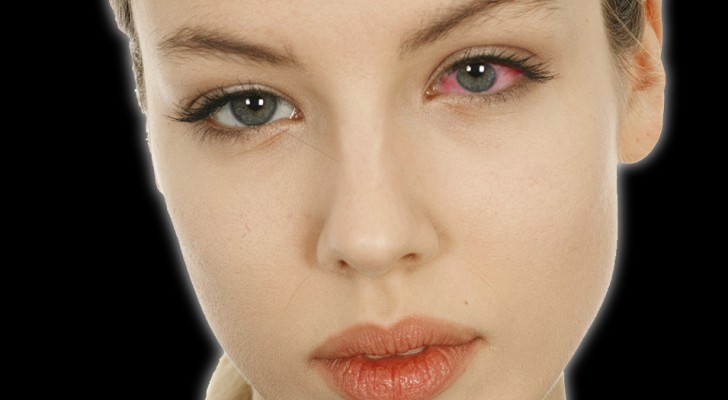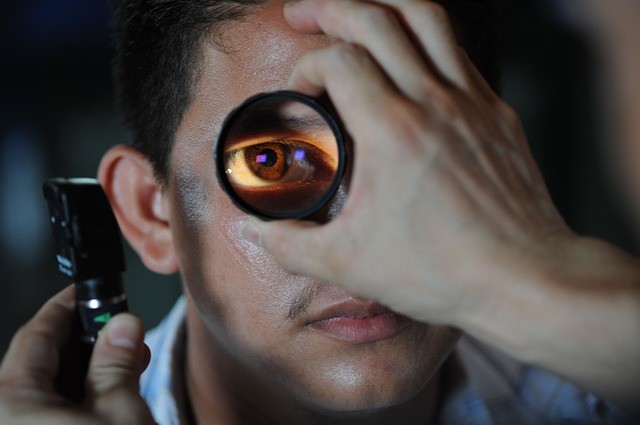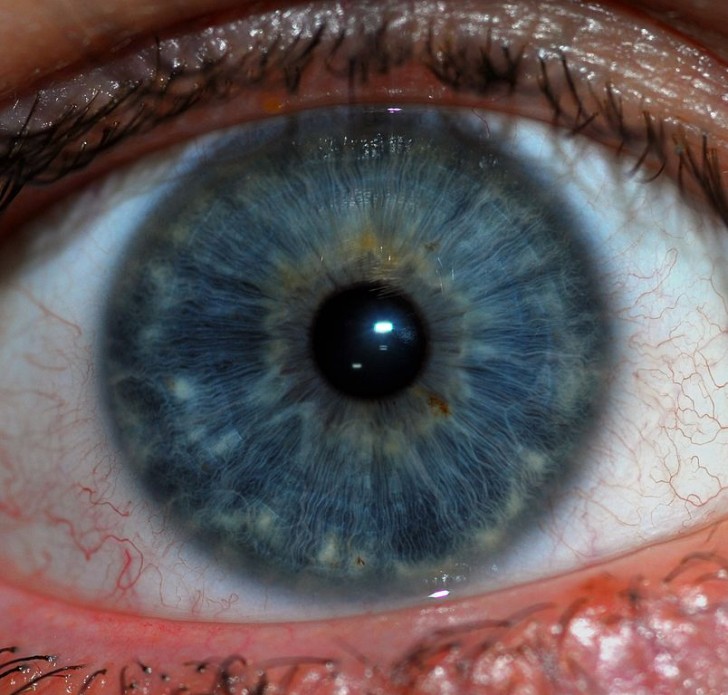5 warning signs our eyes send us when something's off about our vision

Our eyes are one of the most neglected parts of our body.
We stare for hours at bright screens that are notoriously bad, we do not protect them enough when exposed to sunlight, and when they send us a warning sign, we hope it simply disappears the next morning.
It is easy to remember how important the eyes are in everyday life, so why not give them the proper attention?
If you happen to experience any of these five (5) symptoms, you had better not underestimate it, especially if it manifests itself frequently.
1. Dry eyes or excessive tearing

The eye is covered by a tear film that ensures proper hydration. However, it can happen, that the eye will encounter poor or excessive humidity.
If the eye is poorly hydrated it may be due to dry eye syndrome; also in concomitance with autoimmune diseases, the eye can be poorly hydrated. When an eye is "dry", reddened areas appear and the vision is blurred.
On the other hand, a condition in which the eye produces too many tears may occur and in this case, there could be problems with the tear duct.
These situations are not serious, but they can create discomfort for those who experience them. In any case, there are different therapies that solve both problems, which should never be left to themselves.
2. Flying flies

In medicine, the flying flies aka eye floaters that are observed when looking at the sky - or in general, at any clear and luminous surface - are called miodesopsias. They are nothing but the shadows projected on the retina by thickening of the vitreous gel that fills the eyeball.
They are quite common, but if they come to create major disturbances in the eyesight then there could be other problems at the base, even quite serious such as the detachment of the retina.
It is preferable to consult a specialist if the "flying flies" should start to become numerous and obstruct your vision.
3. Pain or eye pressure

Eye pain and feeling a sense of pressure can be traced back to a multiplicity of factors such as a simple trauma, by sinusitis - when the nasal sinuses are pressing against the eye - or by a strong migraine headache.
General eye pain, however, can also be caused by a much more serious condition: glaucoma. If what you are experiencing is not due to one of the causes described above, it is better to investigate the origin of the pain in more depth. Glaucoma, if left untreated, can also lead to blindness.
4. Blurred vision

Blurred vision may be due to a natural deterioration of vision which can be resolved by wearing a pair of appropriate glasses or by updating the graduation of the lenses if you already wear glasses.
However, there are other causes such as poorly controlled diabetes can lead to blurred vision --- due to the accumulation of sugar in the blood that makes the crystalline proteins thicken. Migraine headaches can also cause blurred vision.
5. Black spots and dazzling light

A new spot on the iris should always be examined by a doctor due to the risk that it might be a symptom that is linked to intraocular melanoma aka eye melanoma. Together with the appearance of these spots, eye melanoma also manifests itself through flashing light. The phenomena can affect one or both eyes.
The appearance of small spots and changes in the "weft" (size) of the iris, however, can be completely normal, most often linked to the aging process. Nevertheless, in case of doubt, it is advisable to consult a specialist.
- https://www.mayoclinic.org/diseases-conditions/dry-eyes/symptoms-causes
- https://www.mayoclinic.org/diseases-conditions/eye-floaters/symptoms-causes
- https://www.healthline.com/symptom/eye-pain
- https://www.healthline.com/health/hazy-vision
- https://www.express.co.uk/life-style/health/1013920/eye-cancer-signs-symptoms-dark-spot-iris





